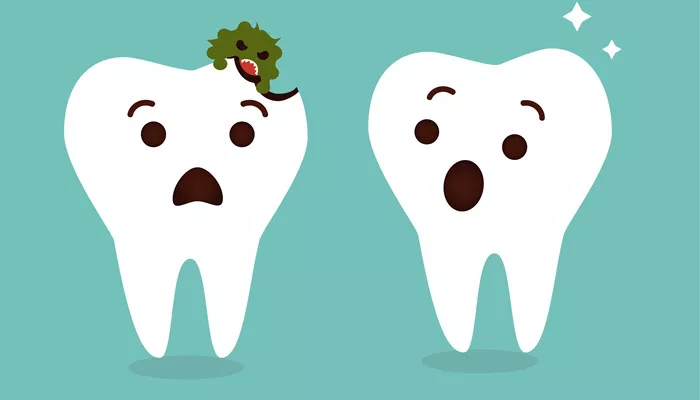Wisdom teeth, also known as third molars, typically emerge in late adolescence or early adulthood. For many people, these teeth can cause problems, leading to the common recommendation for their removal. However, there are situations where it may not be appropriate to extract wisdom teeth. This article will explore when it is not advisable to remove wisdom teeth, the reasons behind these decisions, and the factors that should be considered.
Understanding Wisdom Teeth
Wisdom teeth are the last set of molars that usually appear between the ages of 17 and 25. In some individuals, these teeth may come in without causing any issues, while in others, they can lead to complications. Common problems associated with wisdom teeth include:
Impaction: When there is not enough space in the jaw, wisdom teeth may become trapped (impacted) beneath the gum line.
Crowding: Wisdom teeth can push against adjacent teeth, causing misalignment.
Infection: Partially erupted wisdom teeth can create pockets where bacteria can thrive, leading to infections.
While many dentists recommend the removal of wisdom teeth to prevent these issues, there are specific circumstances where extraction may not be necessary or appropriate.
When is it Not Appropriate to Remove Wisdom Teeth?
1. Fully Erupted Wisdom Teeth Without Problems
If wisdom teeth have fully erupted and are positioned correctly without causing any discomfort or dental issues, removal may not be necessary. Here are some factors to consider:
No Crowding: If the wisdom teeth do not crowd the adjacent teeth and there is adequate space in the mouth, they can remain in place.
Healthy Gums: If the gums around the wisdom teeth are healthy and there is no sign of infection, removal may not be required.
Functionality: If the wisdom teeth contribute to chewing and do not interfere with the bite, they may be left intact.
2. Presence of Medical Conditions
Certain medical conditions may make it unwise or risky to remove wisdom teeth. These include:
Bleeding Disorders: Individuals with bleeding disorders, such as hemophilia, may face higher risks during surgery. The extraction process can lead to excessive bleeding.
Heart Conditions: Patients with specific heart conditions may need to avoid surgery to prevent complications, such as endocarditis, an infection of the heart lining.
Compromised Immune System: Those with weakened immune systems may be at greater risk for infections following surgery. In such cases, dentists may recommend monitoring the wisdom teeth instead of immediate removal.
3. Age Considerations
Age can play a significant role in the decision to remove wisdom teeth. Younger patients tend to recover more quickly from surgery. However, in older adults, the risks associated with anesthesia and surgery may outweigh the benefits of removal. Here are some considerations:
Older Adults: For older patients, the risk of complications during and after surgery increases. If the wisdom teeth are not causing problems, it may be safer to leave them in place.
Developmental Factors: In younger patients, the roots of wisdom teeth may not be fully developed. Early extraction can lead to complications, and it may be better to wait until the teeth have fully formed.
4. Dental Alignment and Orthodontic Treatment
In some cases, individuals who have undergone orthodontic treatment may have their wisdom teeth monitored rather than removed. This is particularly true if:
Alignment is Stable: If the teeth are well-aligned after braces or other orthodontic treatments, and the wisdom teeth are not causing crowding, extraction may not be necessary.
Regular Monitoring: Some dentists prefer to monitor the wisdom teeth over time to ensure they do not cause future problems. Regular X-rays can help assess their position and any potential impact on dental health.
5. Personal Preference and Risk Assessment
Some patients may choose not to remove their wisdom teeth based on personal preferences or concerns about surgery. Factors to consider include:
Fear of Surgery: Anxiety about dental procedures can lead some individuals to delay or avoid extraction. In such cases, discussing concerns with a dentist can help in making an informed decision.
Risk vs. Benefit Analysis: Patients should discuss the risks and benefits of removal with their dentist. If the risks of surgery outweigh the potential benefits, it may be appropriate to keep the wisdom teeth.
Factors to Consider Before Removal
Before deciding to remove wisdom teeth, several factors should be taken into account:
1. Dental Examination
A thorough dental examination is crucial. Dentists will assess the position of the wisdom teeth, their development, and any potential issues that may arise. X-rays are often used to evaluate the roots and surrounding structures.
2. Symptoms and Discomfort
Patients should report any symptoms they experience, such as pain, swelling, or difficulty opening the mouth. If wisdom teeth are asymptomatic and not causing problems, dentists may recommend monitoring them instead of immediate removal.
3. Future Dental Health
Consideration of the long-term impact on dental health is essential. If there is a high likelihood of complications in the future, proactive removal may be warranted. However, if the teeth are stable and healthy, they may be left in place.
4. Consultation with a Specialist
In some cases, it may be beneficial to consult with an oral surgeon or a dental specialist. They can provide additional insights based on their expertise and experience in handling wisdom teeth.
Conclusion
While wisdom teeth removal is common, it is not always necessary or appropriate. Factors such as the position of the teeth, the presence of medical conditions, age, and personal preferences all play a role in determining the best course of action.
If wisdom teeth are fully erupted, healthy, and not causing issues, they may be left in place. Regular dental check-ups and monitoring can help ensure that any potential problems are addressed promptly. Patients should always consult with their dentist to make informed decisions about their dental health. By understanding when it is not appropriate to remove wisdom teeth, individuals can better navigate their options and maintain a healthy smile.
Related topics:

